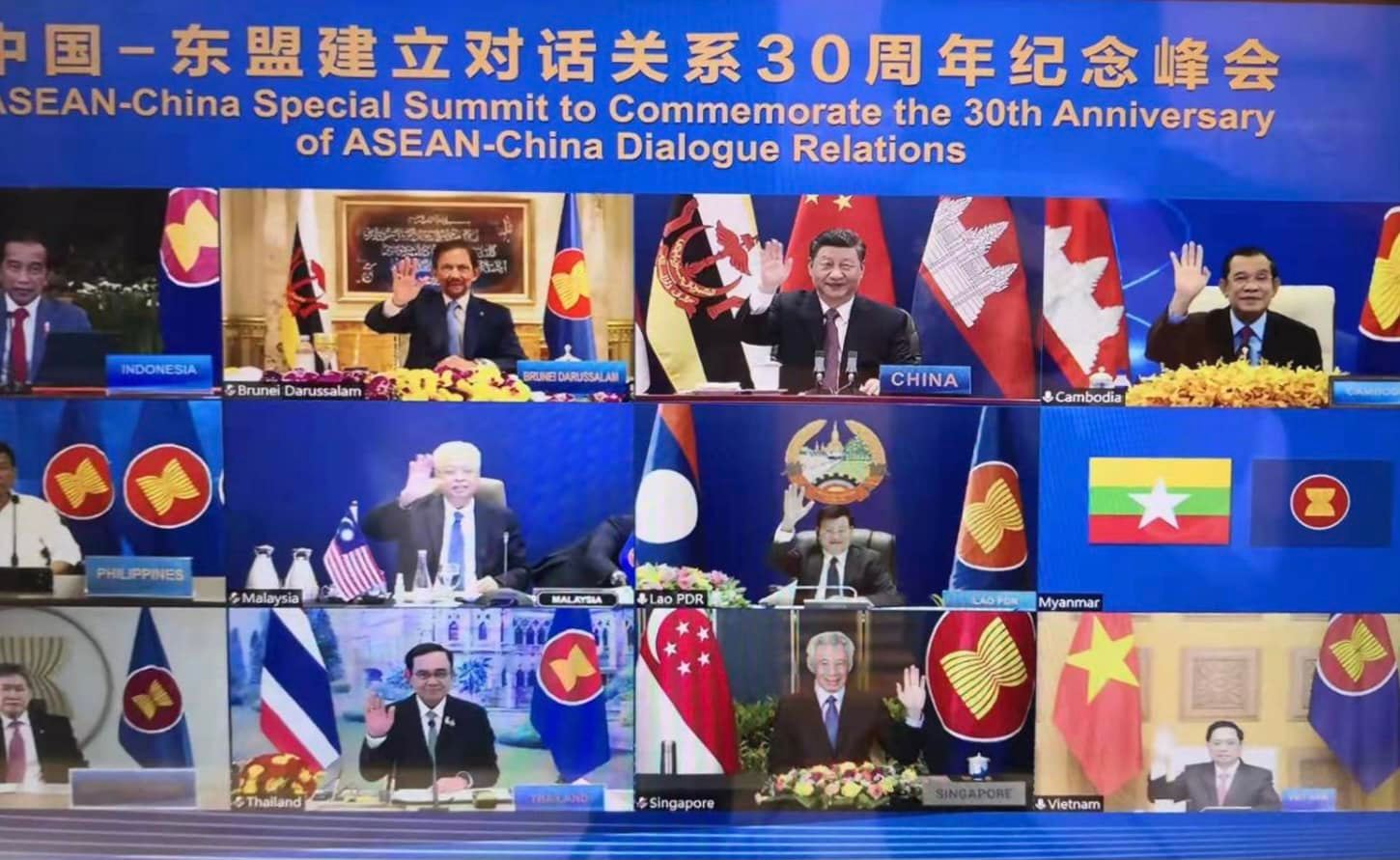China’s envoy, Sun Guoxiang, today failed in his attempt at lobbying ASEAN leaders to allow Min Aung Hlaing to attend the China-ASEAN summit, as another of the bloc’s high-level meets kicked off with Myanmar’s seat unfilled.
Last week, the Chinese envoy was said to have been met with “stiff opposition” when pressing the request with leaders in Singapore and Brunei. Min Aung Hlaing had been blocked from attending the ASEAN Summits in October after his administration failed to work with the bloc on implementing its Five-Point Consensus on Burma.
On Sunday, Singapore’s CNA had been told by Malaysia’s Foreign Minister, Saifuddin Abdullah, that Burma’s ambassador to Beijing, Myo Thant Pe, had been agreed as a suitable replacement for the generals at today’s summit by all ASEAN leaders minus the junta.
Reports today suggest that the military itself poured cold water on the plan, the second time that they have declined a workaround from the bloc after previously refusing to countenance its representation through top diplomat Chan Aye at last month’s ASEAN Summit. A hardliner and head of Naypyidaw’s Ministry of Foreign Affairs, the bloc was seen as lenient in providing an invitation to Chan Aye.
The offering of a seat to Myo Thant Pe, an ambassador appointed before the coup, was never likely to be acceptable to Naypyidaw. With its latest no-show, the junta is once again signalling that it will only accept members of the SAC to speak for it on the international level.
At the summit today, President Xi is reported to have told the bloc that China “would never seek hegemony nor take advantage of its size to coerce smaller countries, and would work with ASEAN to eliminate “interference””—a claim that was met head-on by President Duterte of the Philippines.
The bloc’s determination to continue its snub of the military provides welcome respite to Burma’s revolutionary opposition after two weeks which have seen the junta bilaterally engage with a number of high-profile representatives from foreign nations.
Aside from recent visits of ex-diplomat Bill Richardson, special envoys from both Japan and China, and the Thai foreign minister, a delegation led by Lt-Gen Than Hlaing was recently invited to attend a meeting of INTERPOL’s 89th ICPO General Assembly.
The Embassy of South Korea and associated business chambers are also said to have announced, during a recent conference at Yangon’s Lotte Hotel, that they will push for closer business ties with Burma’s military regime.
Foreign Policy recently published an article suggesting that Beijing has “moved toward de facto recognition” of the junta’s authority.



